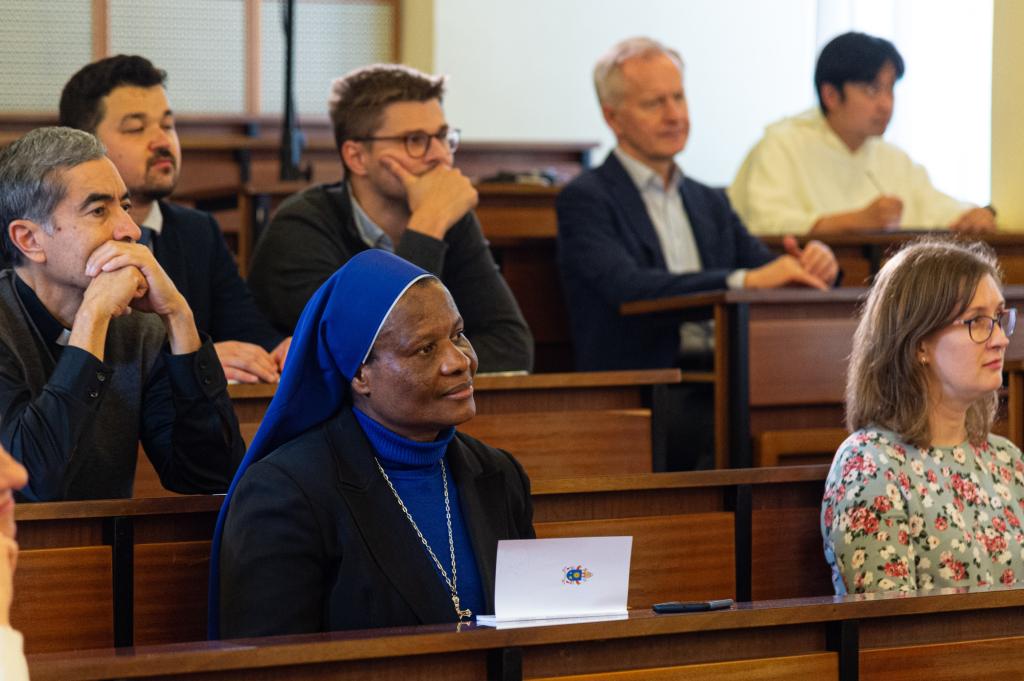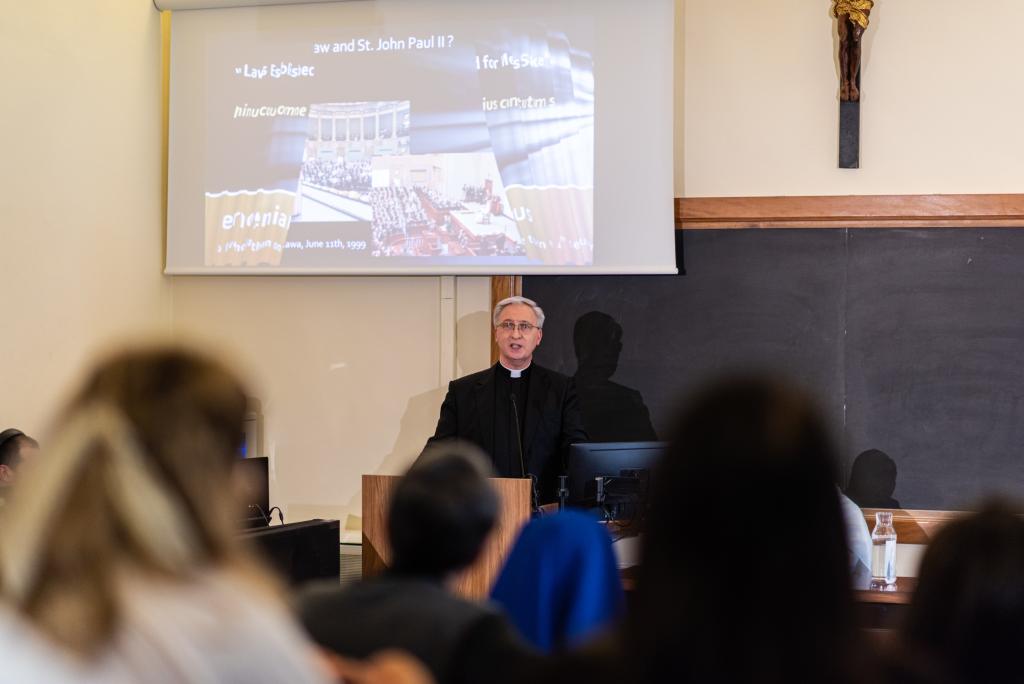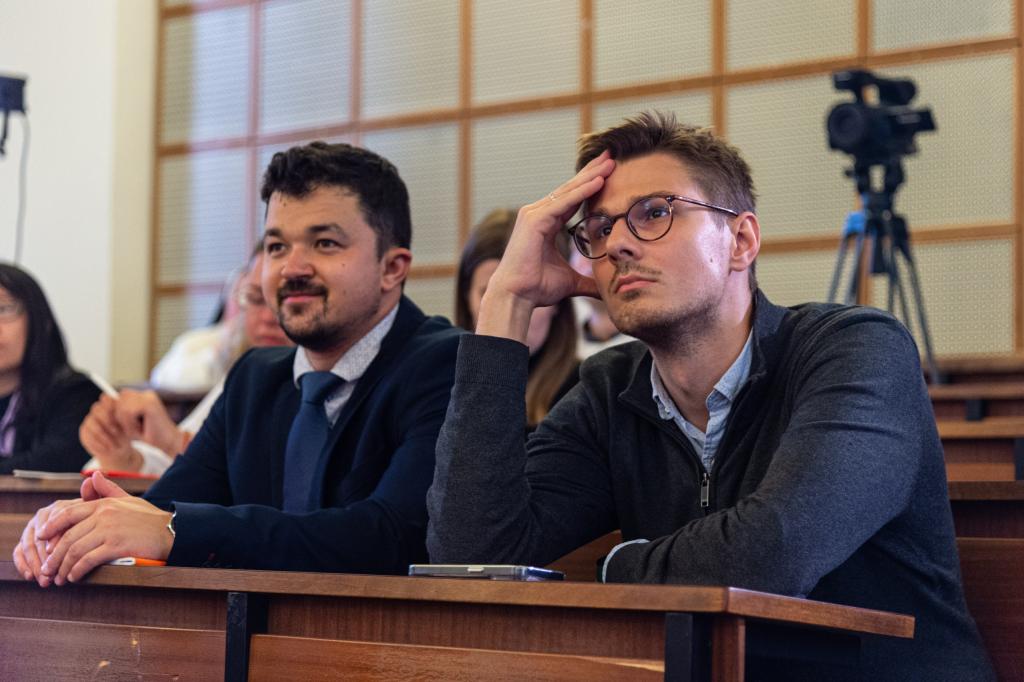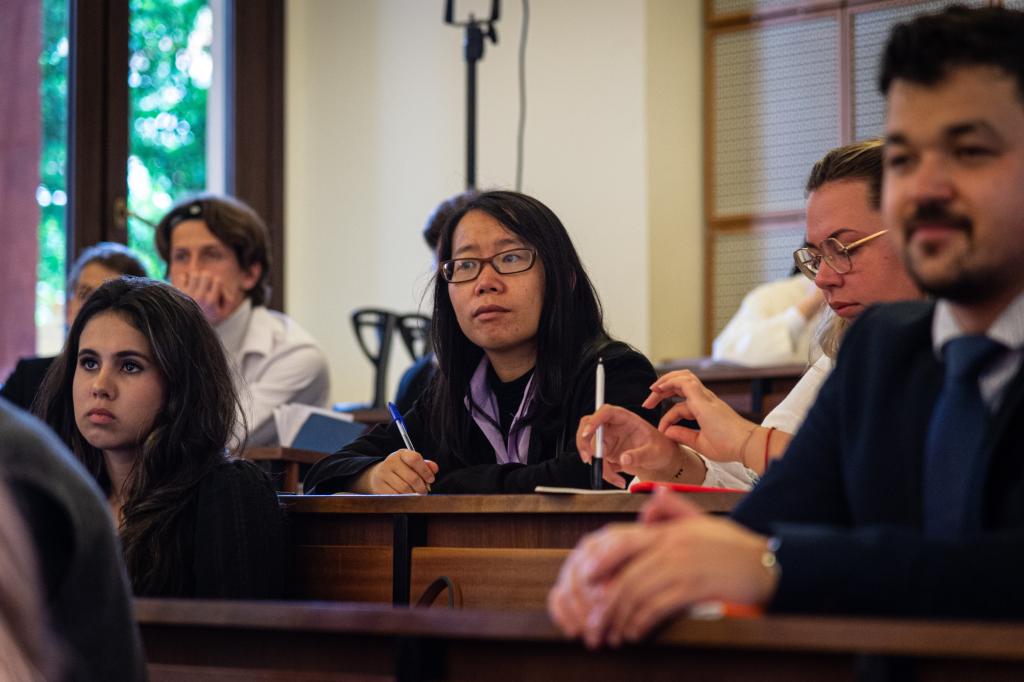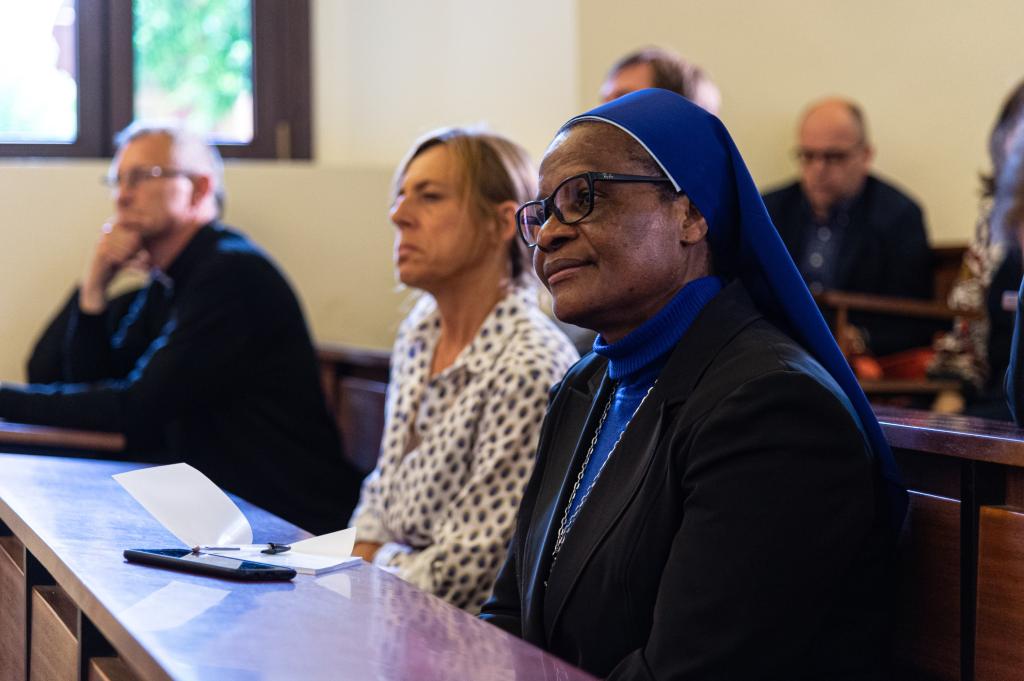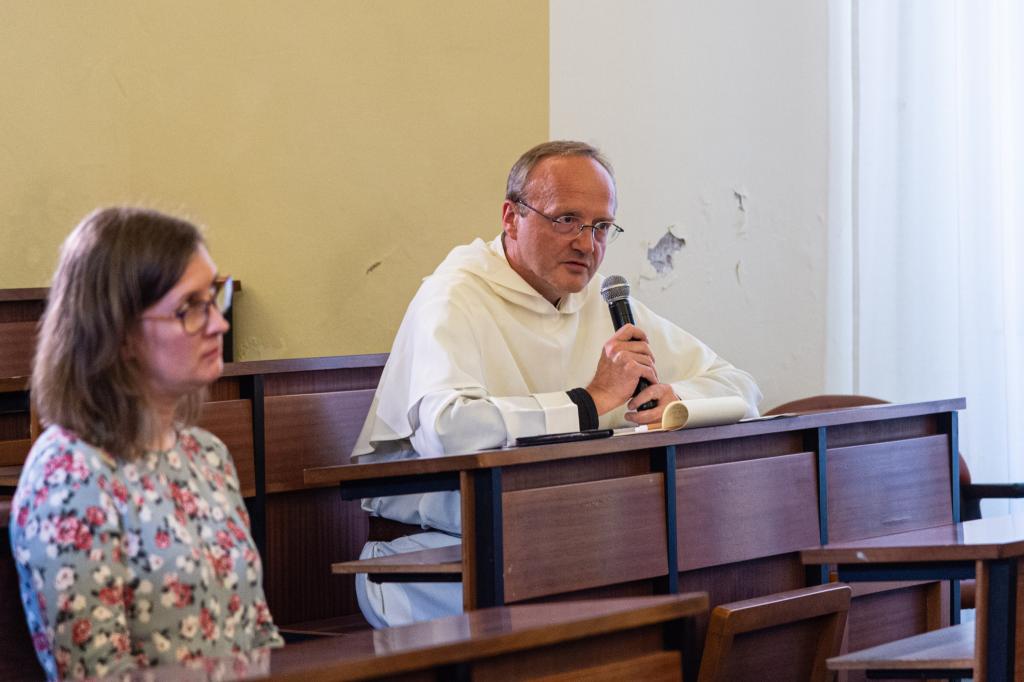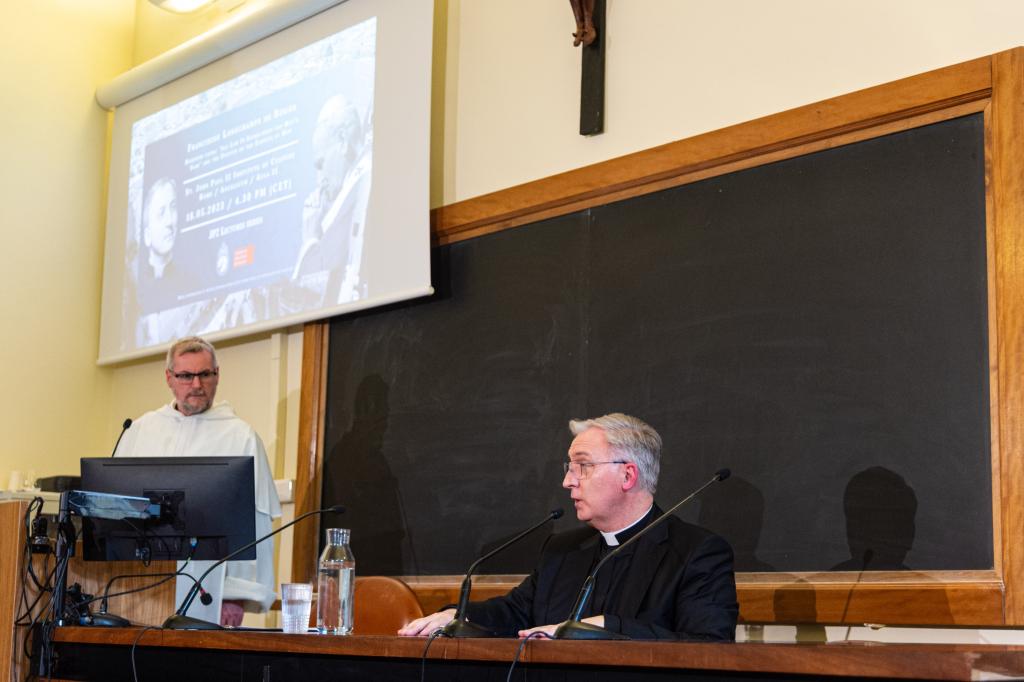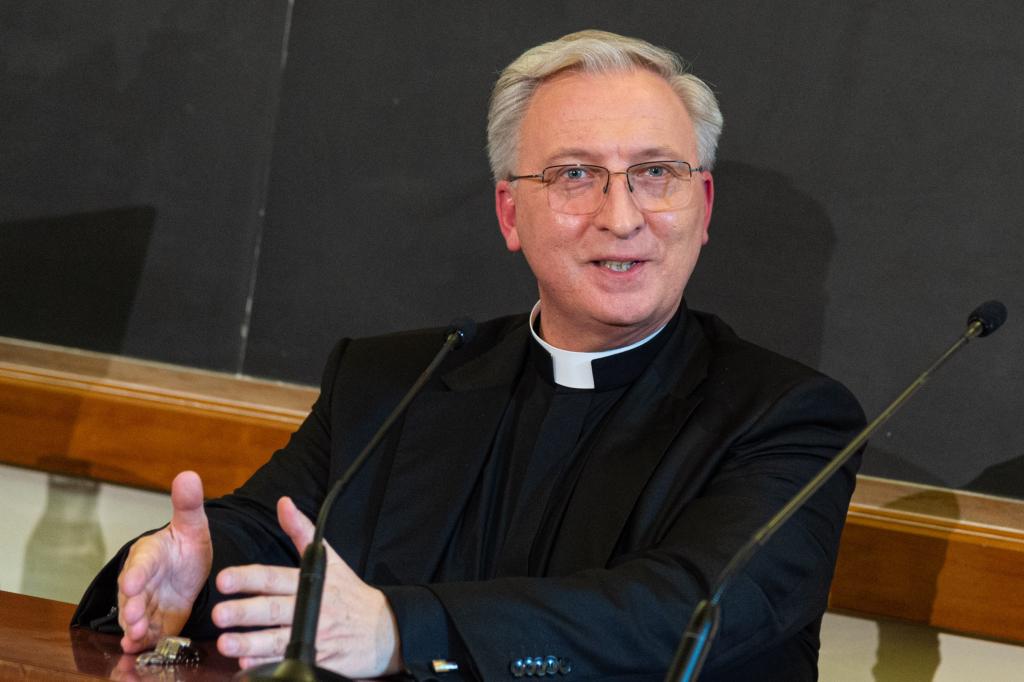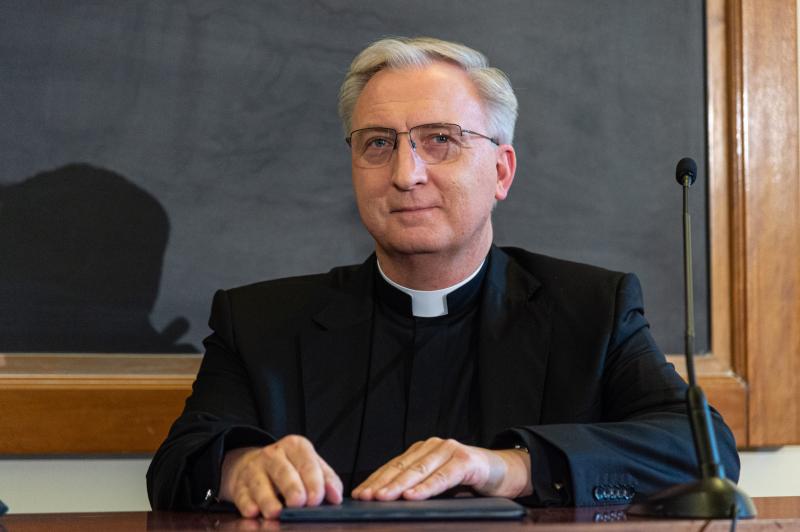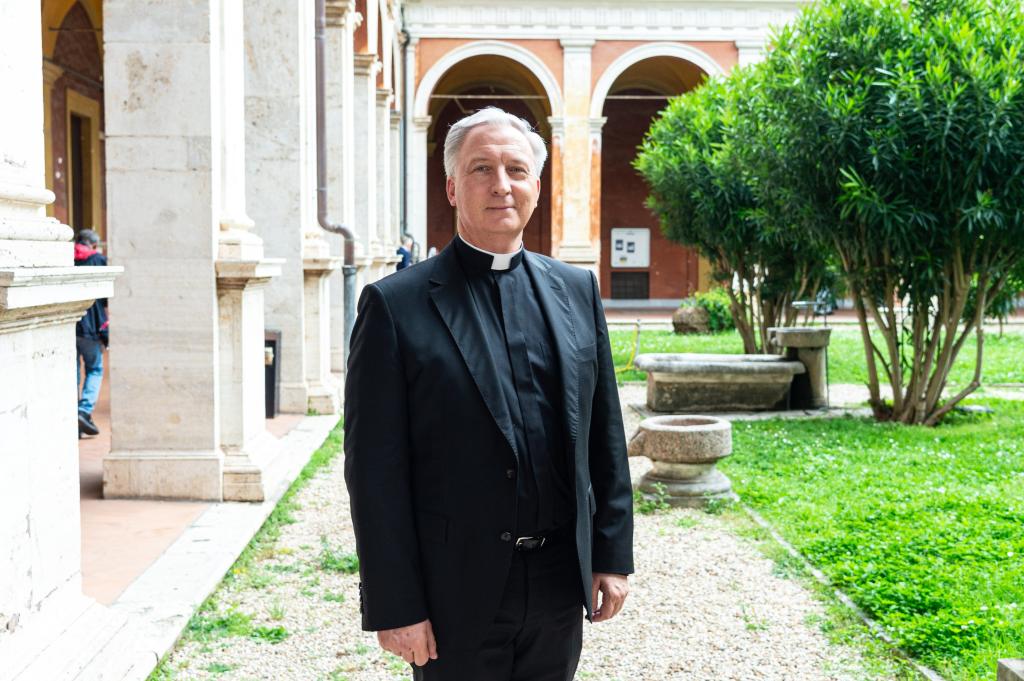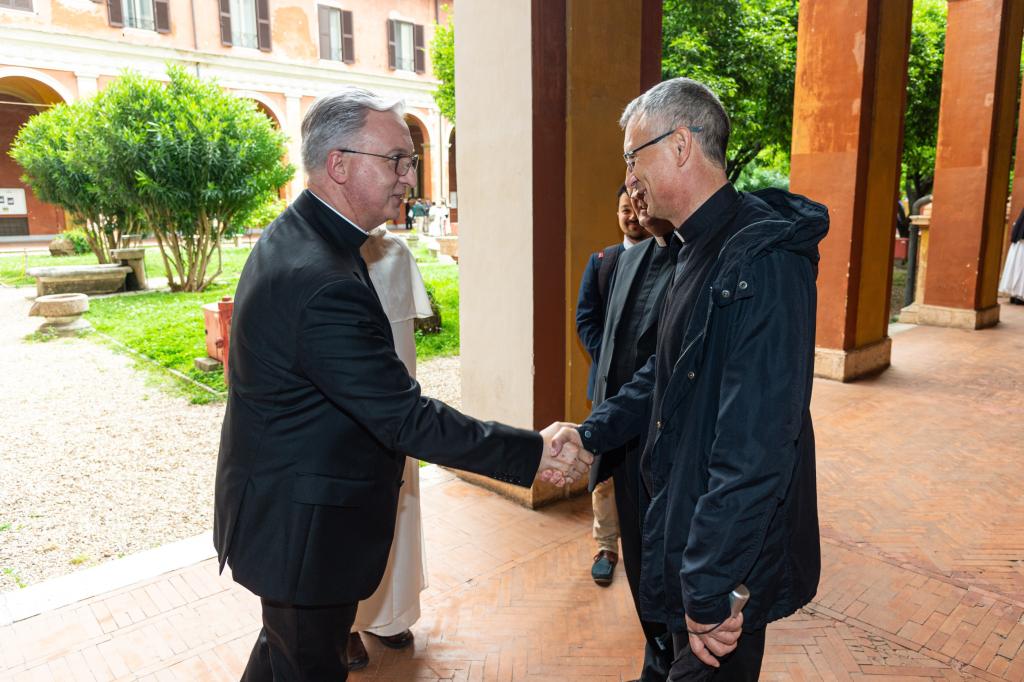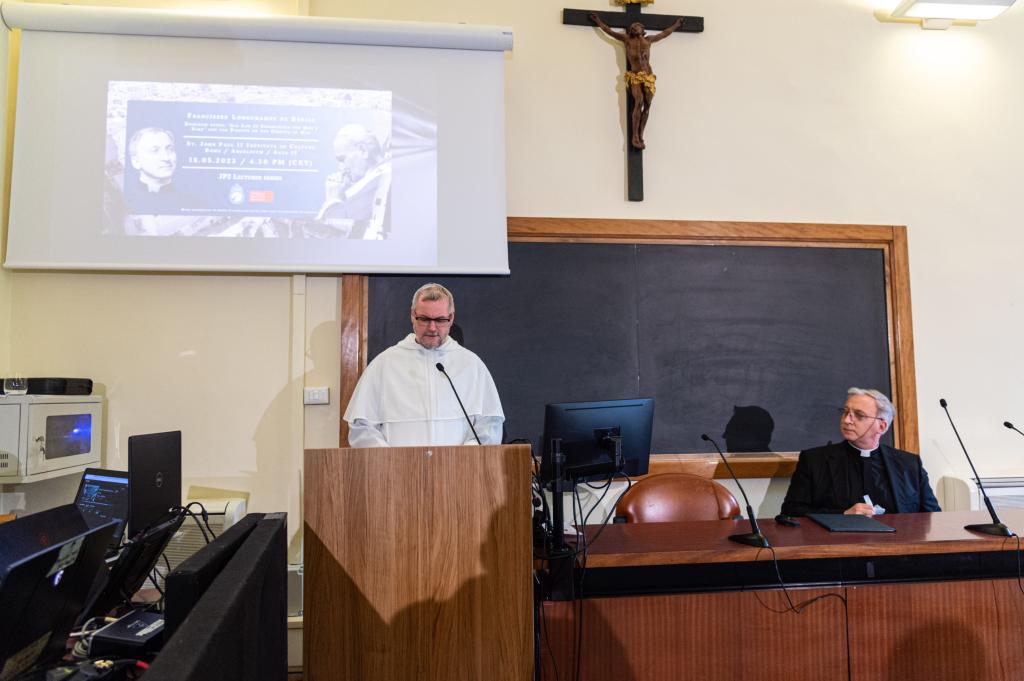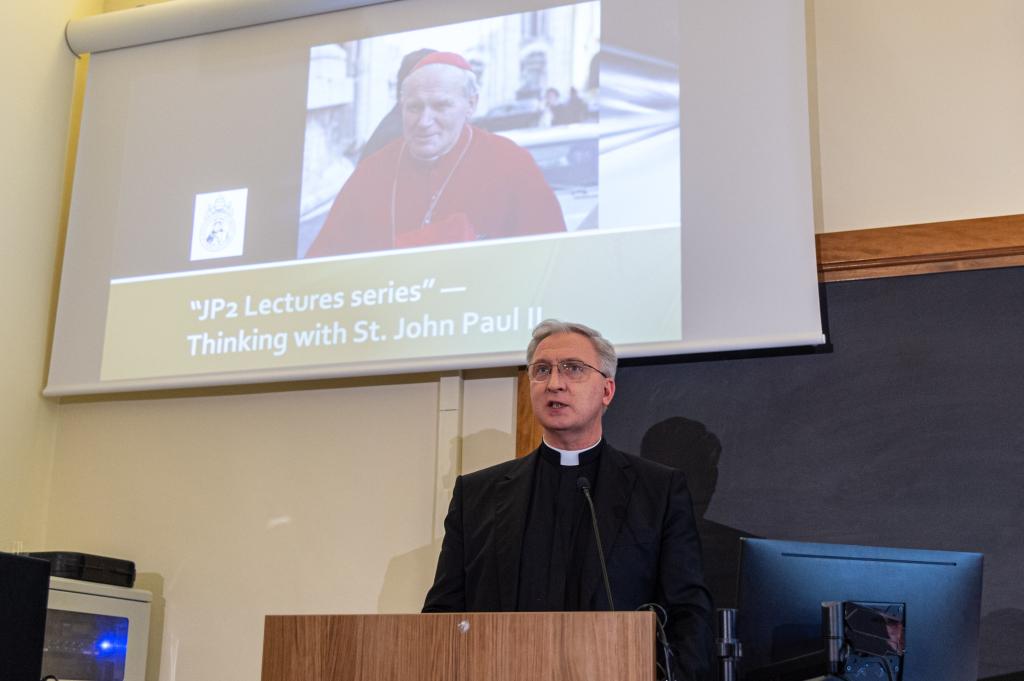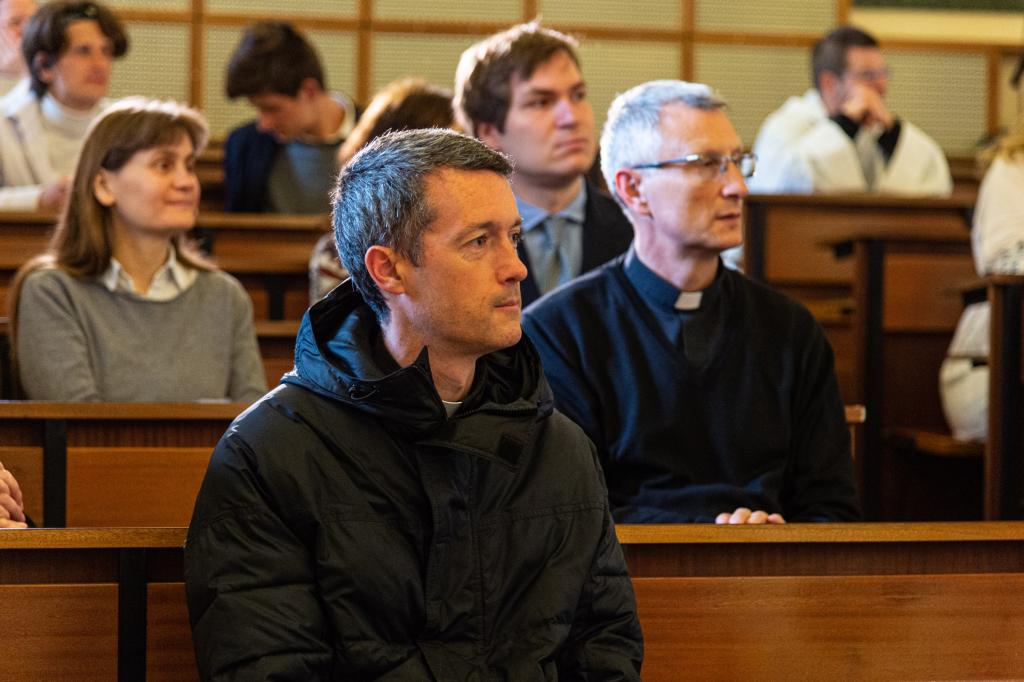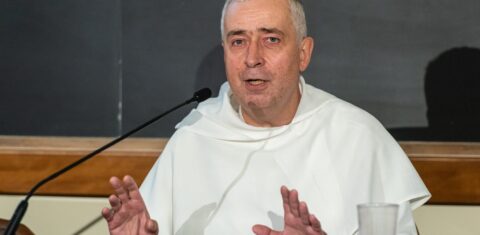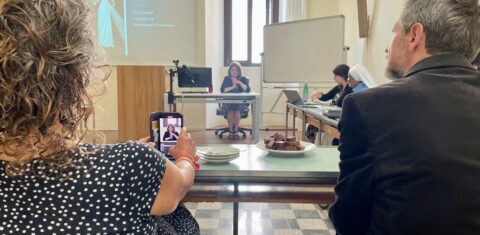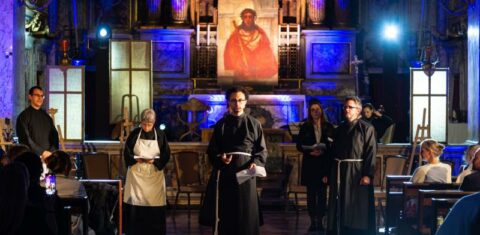Rev. Longchamps de Bérier began the lecture by emphasizing that studying the history of law allows one to benefit from many centuries of experience and developments. He drew the attention of the audience to the close relationship between law and anthropology, moving on to the central theme of the lecture, which focuses on this relationship between legal culture and consideration for the human person, expressed in the Latin maxim “hominum causa omne ius constitutum sit” – “all law is established for men’s sake”. It comes from the writings of Roman jurist Aurelius Hermogenianus, a respected authority in antiquity, quoted in Emperor Justinian’s Digests.
Why is this quote so important? John Paul II stressed that true democracy is possible only when the state is governed by law, and its basis is a properly understood consideration of the human person. Fr. Longchamps de Bérier referred to these words as combining the ancient jurist’s reflection with contemporary challenges. In the face of totalitarianisms whose legal systems have trampled on the dignity of the human person, a reconsideration of this issue appears to be a pressing need.
In the remainder of the lecture, Fr. Longchamps de Bérier considered various possible interpretations of the Hermogenian passus in historical contexts, while attempting to move closer to a conclusive conclusion. He pointed out that the concept of “person” is a legacy of Roman legal culture, developed and enriched by Christian philosophy. Continuing his argument, Fr. Longchamps de Bérier considered the reception of this Hermogenian articulation and its significance for the European and, more broadly, Western legal order. Reaching modern times, he discussed at length the competing understandings of the law that prevailed, among others, in Poland during the Communist era. The Marxist interpretation of law accorded a completely different place in the legal system to the individual. The pursuit of man’s self-liberation through class struggle, that is, action rather than man himself as the subject of action, was the primary goal. A philosophy of law that acknowledged the superiority of the individual subject of rights was therefore at odds with Marxism and was fought from these positions.
Fr. Longchamps de Bérier concluded that the relationship of law to man, which today seems universal, was formulated by Roman legal theorists. Their concept of the person as the bearer of rights was and is acceptable not only to those who share the Christian vision of man. – Respect for the human person is necessary always and everywhere, not only in societies that build democracies with truly human values,” he concluded.
Photo: Fabio Pignata
__________________________________
Rev. Franciszek Longchamps de Bérier – Professor of Law and the Head of the Department of Roman Law at the Faculty of Law and Administration of the Jagiellonian University in Kraków (Poland); he also teaches at the Faculty of Law and Administration of the University of Warsaw (Poland). He has an LL.M. from Georgetown University. He is a Catholic priest and an expert on bioethics for the Polish Episcopal Conference as well as a member of the COMECE Legal Affairs Commission. He has also been elected to the Committee of Legal Sciences of the Polish Academy of Sciences. He researches in the fields of Roman and civil law, legal history, European legal tradition, law of succession, methodology of private law, freedom of speech, and freedom of religion in US law.
